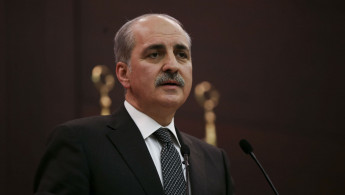Turkish minister slams Saudi network's 'political' ban on Turkish soaps
A Turkish minister has slammed a decision by the Middle East's largest private media network to ban Turkish television shows as a "political" act of "clear censorship."
Culture and Tourism Minister Numan Kurtulmus' words followed the Dubai-based MBC Group's announcement on Sunday. The Saudi-owned network issued instructions to cease broadcasting Arabic-dubbed Turkish soaps from all of its channels.
"It is not a couple of politicians who are supposed to decide who will watch which movies or shows from their desks," Kurtulmus told Al Jazeera. "We are in a time when information technologies are developing fast. Therefore, I believe that these sanctions and censorship will not limit the choices of the audience."
MBC has yet to explain why the shows were pulled, however it is speculated that the move may be to do with the ongoing diplomatic standoff between Saudi Arabia and its allies and Qatar.
Relations between Turkey and Saudi Arabia and the United Arab Emirates were strained after Ankara became one of the first countries to publically coice its support for Doha at the beginning of the Saudi-led blockade last June.
Saudi Arabia, the UAE, Egypt and Bahrain accuse Qatar of supporting terrorism and fostering close ties with Iran, Riyadh's regional rival.
Turkey, however, has stood by Qatar and dispatched troops to its military base in the Gulf state shortly after the crisis began. Ankara also increased supplies of food and other essential items in order to help alleviate shortages caused by the boycott.
As part of the action against Qatar, Saudi authorities also arrested a number of public figures thought to be sympathetic to Doha in what has been touted by Riyadh as an anti-corruption sweep.
Among those arrested was Saudi businessman Waleed al-Ibrahim, who is thought to control the MBC network.
Al-Ibrahim was released from custody at the end of January, however it was reported shortly after his release that Saudi authorities will take majority control of the TV network.




 Follow the Middle East's top stories in English at The New Arab on Google News
Follow the Middle East's top stories in English at The New Arab on Google News

![A group of Palestinians, foreign and Israeli activists gather to participated in an olive picking event on the land in the town of Battir, which is under threat of confiscation by Israel in Bethlehem, occupied West Bank on 8 November 2024. [Getty]](/sites/default/files/styles/image_330x185/public/2182930803.jpeg?h=199d8c1f&itok=__0LgGsa)
